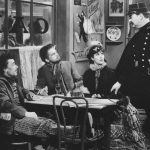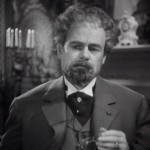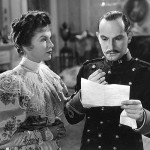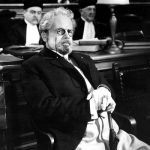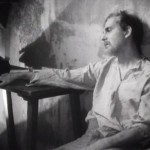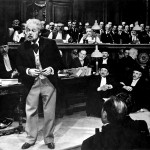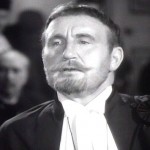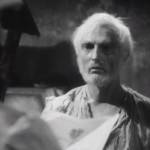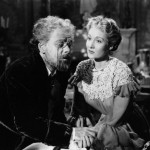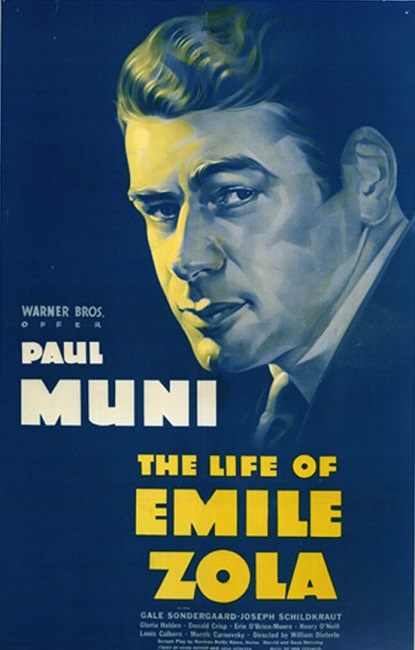
The Life of Emile Zola – 1937
Emile Zola was a French author who lived in the mid 1800’s. According to this biographic movie, he started his career as a poor and starving writer living with poor and starving painter. As artists, they both had a need to find truth, both in their world and in their work. Zola began writing works criticizing the government and the military. Of course, those he criticized were not happy and they censured his work. But as we all know, the best way for a book or a movie, or any trend or fashion for that matter, to become immensely popular, is to censure it.
Thus began The Life of Emile Zola. Today, most Americans have never heard of Emile Zola, but I can think of two reasons why audiences of 1937 might have known who he was. First, he was a much more recent figure. After all, he died in 1902 – only thirty-five years before the movie had been made. Of course, that would be one hundred eleven years before today. Second, let’s face it, books were much more prevalent back then and more people had read his works.
The movie followed his career from around 1860 to his death. However, most of the film is centered around the Dreyfus case, in which an innocent man is sent to prison, and Zola’s involvement in it. Zola, played by Paul Muni, is very charismatic. Not only is he a successful writer, but he also is able to give inspiring public speeches when he needs to. I looked up pictures of the real Zola, and Muni really looked the part – sometimes difficult to do when the film is a biography. There was never a point in the movie in which I did not like his character portrayal.
Ultimately, I enjoyed watching the movie, but to me it was a bit unmemorable. It was really a political drama. I have never taken a huge interest in politics of any kind. There was no exciting action or heavy emotional drama. It was all about a man who incited political and social changes in his beloved country, so in that respect I found pacing of the movie to be a bit slow. There were two speeches given by Zola that were able to catch my interest and stir the blood a little, but they were only brief moments in the movie.
The rest of the actors in the film all did a good job. I was particularly impressed with Joseph Schildkraut who played the part of Captain Alfred Dreyfus and also with Gale Sondergaard who played the part of his wife, Lucie Dreyfus. Most of the emotional content of the film belonged to them as they are wrongfully separated for five years. Lucie never stops trying to prove her husband’s innocence. There was a brief scene where she visits him in prison, but can only see him for a few minutes without being able to touch him. The whole visit is supervised by guards. They both acted that scene very well.
Unfortunately, that was the extent of the emotional drama. Again, the main focus of the movie was Zola’s trial. Yes, Zola himself was put on trial for speaking out against the injustice of the Dreyfus case and another closely related case. It was the other case, however, for which he was arrested and the trial was a complete sham. That was also interesting to watch, although, if the real court case was anything like it was depicted in the film, I can’t imagine how anyone would not see what a horrible injustice was being perpetrated by the French court.
I didn’t particularly care for the end of the movie – specifically, Zola’s death. Apparently, he died of carbon monoxide poisoning, which was historically true. But the movie didn’t show what really happened. Actually, a Parisian roofer claimed to have murdered Zola by closing his Chimney for “political reasons.” But the movie only shows his wife putting a brick on the fire and leaving the room. There are a few shots of smoke entering the room through the chimney pipe, and then he dies. Maybe if the film had shown what really happened, I’d have felt more emotional sympathy for the character. As it was, I thought it a rather anticlimactic ending to the film, which makes his death seem like nothing more than an accident. But then, I also thought the movie itself was pretty anticlimactic. So in that regard, the ending was an appropriate one.
All in all, it was a good enough movie, though a little too slow for my tastes.
